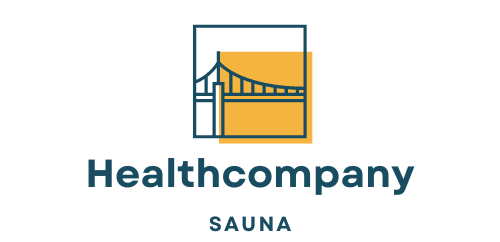Why choose a french immersion school for your child's future?

Choosing a French immersion school can profoundly impact your child's academic and personal growth. These programs offer not just language skills but also cultural enrichment, fostering a global mindset. With personalized attention and engaging curricula, students learn in vibrant environments that prepare them for future challenges. Explore how a French immersion education can open doors, enhance cognitive abilities, and build essential life skills for your child's future success.
Understanding French Immersion Schools
French immersion schools offer a unique approach to bilingual education, focusing on language acquisition and cultural exposure. The structure of these programs allows students to learn content in both the target and native languages, developing proficiency in French through an immersive curriculum. This method is beneficial not only for children but also for adults eager to enhance their language skills. For those exploring options, you can find more details on this page: https://www.institutdefrancais.com/.
Also to discover : How Can Technology Enhance the Learning Experience for UK Special Education Students?
One of the key benefits of bilingual education is cognitive enhancement. Research suggests that immersion students often perform better in problem-solving and critical thinking tasks. Additionally, these programs foster greater cultural awareness and sensitivity, preparing students to engage in an increasingly globalized world. This aspect is vital as it allows individuals to appreciate and adapt to diverse cultures effectively.
The contrast between immersion and traditional educational approaches is notable. While traditional schools focus on language as a subject, immersion schools incorporate French into everyday activities, delivering a more dynamic and engaging learning experience. This environment not only boosts language proficiency but also supports holistic development in students.
Topic to read : What Are the Advantages of Telemedicine for Rural Communities in the UK?
Available French Immersion Program Options
Popular French Immersion Schools
French immersion programs offer diverse opportunities to learn the language in an engaging environment. The Institut de Français provides intensive courses in Villefranche-sur-Mer, emphasizing the "Total Approach" for rapid fluency. These programs offer small group sizes, ensuring personalization and interaction. Meanwhile, ILA French Language School in Montpellier focuses on varied courses, from standard to specialized options, accompanied by cultural activities that enrich the learning experience. In Paris, institutions offer immersive experiences in a vibrant setting, combining lessons with real-world interactions.
Program Structures and Costs
Program structures vary widely, catering to different needs and budgets. Courses may range from two weeks to a year, with flexible schedules accommodating diverse timelines. Fees depend on the duration, program type, and additional inclusions such as accommodation or activities. Homestays or student residences often supplement the immersive experience, providing convenient housing options.
Accessibility and Resources in Local Communities
Accessibility to resources plays a pivotal role in a successful immersion experience. Many programs integrate community resources, such as local cultural events or exchange opportunities, ensuring extensive practice. Schools prioritize accessibility by supporting students with mobility needs and promoting inclusivity. This community focus enriches the learning process, making it both effective and enjoyable.
Effective Methods and Curriculums in French Immersion
Innovative Teaching Approaches for Language Learning
French immersion programs often employ innovative teaching methods to facilitate effective learning. At schools like the Institut de Français, the Total Approach is a popular technique, integrating audio-visual aids and a French-only environment to promote oral fluency rapidly. Small class sizes enhance interaction, allowing instructors to cater to individual learner needs and optimize language assimilation. By focusing on communication, these methods effectively bridge the gap between theoretical knowledge and practical application.
Curriculum Highlights and Language Proficiency Goals
The curriculum in French immersion schools aims to develop comprehensive language proficiency. Structured courses cover core areas like reading, writing, speaking, and listening, progressively building skills essential for fluency. Programs often set clear milestones for achieving proficiency, such as preparing for DELF/DALF exams or incorporating cultural studies to deepen understanding. This targeted approach helps students achieve significant language growth in a short timeframe.
Role of Parents in Supporting Immersion Education
Parental involvement is crucial in a child's immersion education. Encouraging bilingual environments at home and engaging in language-related activities, such as reading French books or watching movies, reinforces classroom learning. Parents can also participate in school-organized activities and outings, providing further opportunities for cultural integration and enhancing the child's overall learning experience.
Long-Term Effects and Success Stories of French Immersion
Long-term Academic and Social Benefits of Bilingualism
Bilingualism offers a wealth of long-term benefits, particularly through enhanced cognitive abilities such as improved memory and multitasking skills. Academically, students who undergo language immersion often exhibit superior problem-solving abilities compared to their monolingual peers. Socially, bilingual individuals can navigate diverse cultural contexts, fostering empathy and communication skills across cultures. This bilingual advantage extends into professional environments where individuals often access wider career opportunities.
Real-life Success Stories from Former Immersion Students
Success stories from former immersion students highlight the impactful nature of these programs. Alumni often share experiences of mastering fluency in French and how it has opened doors to international careers and enriched personal relationships. These stories underscore the profound cultural understanding gained, which goes beyond language proficiency, influencing personal development and global interactions.
Challenges Faced by Students and Effective Transition Strategies
While immensely beneficial, immersion programs present challenges. Students may face initial difficulty in comprehension, but effective transition strategies like peer support and tailored learning interventions ease this process. Teachers play a crucial role in facilitating successful transitions from immersion to mainstream education, using proven methods to strengthen students’ bilingual competencies.
